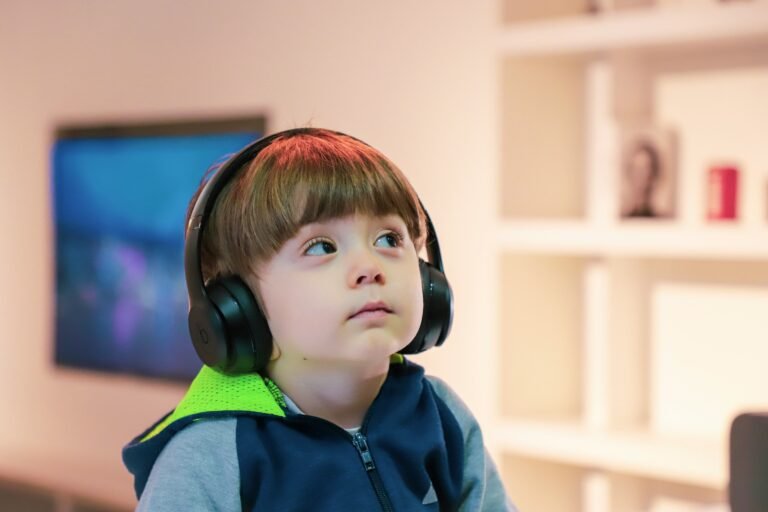What are the 12 signs of autism in adults?
Autism Spectrum Disorder (ASD) is commonly diagnosed in childhood, but many adults discover their autism later in life. Recognizing autism traits in adults can be complex, as these signs often manifest differently compared to childhood. If you’re an adult wondering whether you might be on the autism spectrum, learning about the typical indicators can be an essential first step in understanding yourself.
The following 12 signs are commonly associated with autism in adults, though they can vary significantly from person to person.
1. Difficulty in Social Interactions
Adults with autism may find it challenging to navigate social situations. Do you feel uncomfortable in social gatherings or find it hard to understand the unwritten social “rules”? Small talk, understanding jokes, and maintaining eye contact may feel difficult or pointless, and you may find yourself avoiding social interactions as a result.
2. Struggle with Nonverbal Cues
Nonverbal communication, such as facial expressions, body language, and tone of voice, can be challenging for adults on the autism spectrum. You might find it hard to interpret others’ emotions or intentions, or you might miss subtle cues altogether. This can sometimes lead to misunderstandings or the feeling that you’re “missing something” in social exchanges.
3. Literal Interpretation of Language
People with autism often interpret language literally. Phrases like “break a leg” or “it’s raining cats and dogs” might cause confusion. You may prefer direct, clear communication over idioms, sarcasm, or figurative speech, finding these expressions baffling or even frustrating.
4. Difficulty with Change and Transitions
Routine is essential for many autistic adults. Sudden changes or transitions can cause significant stress and anxiety. Even small disruptions to your daily routine might feel overwhelming or unsettling. You may find comfort in having a structured daily plan and feel more at ease when you know what to expect.
5. Sensory Sensitivities
Many autistic adults experience heightened sensitivity to sensory input. Do bright lights, loud noises, or specific textures bother you? You might feel overwhelmed by sensory stimuli that others seem to tolerate easily, leading to physical discomfort or anxiety. On the other hand, you might also have sensory-seeking behaviors, such as a preference for specific textures or sounds.
6. Intense Focus on Special Interests
A deep, focused interest in specific topics is common among autistic adults. Do you find yourself immersed in a particular subject, hobby, or skill to the point of losing track of time? These special interests often bring joy and serve as a source of comfort or expertise, but they can also take up much of your time and energy.
7. Repetitive Movements or Stimming
Stimming, or self-stimulatory behavior, includes repetitive movements or sounds that help autistic individuals manage emotions and sensory input. Common stimming behaviors include hand-flapping, rocking, tapping, or repeating phrases. Stimming can provide comfort or a way to release pent-up energy and may become more prominent in moments of stress or excitement.
8. Difficulty with Executive Functioning
Executive functioning skills, such as planning, organizing, and completing tasks, can be challenging for adults on the autism spectrum. You might struggle with time management, procrastination, or starting and finishing tasks. These difficulties can impact daily life, work, and relationships.
9. Preference for Solitude
Many autistic adults feel most comfortable when alone, finding social interactions draining or overstimulating. You may prefer solitary activities or need extended periods of alone time to recharge. This preference for solitude isn’t necessarily loneliness but rather a way to avoid social exhaustion.
10. Challenges in Romantic Relationships
Romantic relationships can be particularly challenging for autistic adults. Do you find it difficult to understand your partner’s emotional needs, or do you feel uncertain about relationship dynamics? Communication, empathy, and understanding can require additional effort, as these relationships often involve complex social and emotional cues.
11. Difficulty with Empathy
While many autistic adults do feel empathy, they might struggle to express it in ways that others recognize. You might empathize deeply with others but feel unsure about how to respond to their emotions. Conversely, you may struggle with cognitive empathy—understanding what someone else is feeling—which can create challenges in personal relationships.
12. Emotional Regulation Challenges
Intense emotions and difficulty managing them are common in autistic adults. You might experience strong emotional responses that seem hard to control, sometimes leading to “meltdowns” (outward expressions like yelling or crying) or “shutdowns” (withdrawing or going silent). Managing emotions can feel overwhelming, especially in stressful or overstimulating situations.
Table: 12 Signs of Autism in Adults
| Sign | Description |
|---|---|
| Difficulty in Social Interactions | Challenges in navigating social norms, small talk, and group settings |
| Struggle with Nonverbal Cues | Difficulty interpreting body language, facial expressions, and tone of voice |
| Literal Interpretation of Language | Preference for clear, direct language, with confusion around idioms or sarcasm |
| Difficulty with Change and Transitions | Resistance to change and a strong need for routines |
| Sensory Sensitivities | Heightened sensitivity to lights, sounds, textures, or other sensory input |
| Intense Focus on Special Interests | Immersive interest in specific topics, sometimes to the exclusion of other activities |
| Repetitive Movements or Stimming | Self-stimulatory behaviors like rocking, tapping, or repeating sounds |
| Difficulty with Executive Functioning | Struggles with planning, organizing, and managing tasks |
| Preference for Solitude | Need for alone time to recharge; discomfort in social situations |
| Challenges in Romantic Relationships | Difficulties in understanding and meeting a partner’s emotional needs |
| Difficulty with Empathy | Experiencing or expressing empathy differently than neurotypical individuals |
| Emotional Regulation Challenges | Intense emotional responses, difficulty in managing feelings, potential for meltdowns/shutdowns |
Understanding These Signs in Your Life
It’s important to remember that not everyone will experience all of these signs, and the degree to which they are present can vary widely. Autism is a spectrum, meaning each autistic person has unique traits and experiences. Even if you identify with some of these signs, it doesn’t necessarily mean you are autistic. These signs can serve as a foundation for exploring your neurodiversity, and if you’re curious about a potential diagnosis, they can help you initiate discussions with a professional.
Steps to Take If You Think You’re Autistic
Here are some actions you might consider if you’re exploring the possibility of autism:
- Research and self-assessment: Begin by reading about autism in adults, especially firsthand accounts from autistic individuals. Online quizzes or tools can give you a starting point, though they are not diagnostic.
- Speak with a professional: If you resonate with several signs, consider reaching out to a psychologist, psychiatrist, or neurodevelopmental specialist who is experienced with adult autism assessments.
- Track your experiences: Journaling about your daily experiences can help identify recurring patterns that align with autism traits.
- Connect with communities: Many autistic adults find valuable support in online and in-person communities where they can share experiences and insights.
- Consider your own well-being: Ultimately, whether you pursue a diagnosis or not, recognizing and embracing your unique neurodiversity can lead to a more fulfilling, self-compassionate life.
Frequently Asked Questions
Is it common for adults to be diagnosed with autism?
Yes, autism in adults is more common than once thought. Many people remain undiagnosed until adulthood due to a lack of awareness or subtle traits that were overlooked in childhood. With increased understanding and recognition, more adults are discovering their place on the autism spectrum.
Can I be autistic if I only have a few of these signs?
Absolutely. Autism presents differently in every individual, and you may not exhibit all the classic signs. If certain traits resonate deeply with you, it might still be worth exploring further, especially with the help of a specialist.
How is adult autism diagnosed?
Adult autism diagnosis typically involves a combination of interviews, self-assessment questionnaires, and observations. A professional will evaluate your developmental history and current behaviors to determine whether they align with autism criteria.
Are there other conditions that might have similar signs?
Yes, other conditions, such as ADHD, social anxiety, and sensory processing disorder, can exhibit overlapping traits with autism. A professional can help differentiate these conditions and offer a clear diagnosis.
Should I seek a diagnosis if I think I might be autistic?
A diagnosis can offer validation, self-understanding, and access to support and accommodations. It’s a personal choice, but many people find that a diagnosis helps them better understand themselves and their needs.
Final Thoughts
Learning about the 12 signs of autism in adults can help you better understand yourself and your unique experiences. Whether you resonate with one or several of these signs, the most important thing is to approach this journey with openness and self-compassion. Autism is a different way of experiencing the world, and embracing your neurodivergence can lead to a more self-aware and fulfilling life. Consider exploring further if you feel that a diagnosis could offer clarity, support, or personal insight.






